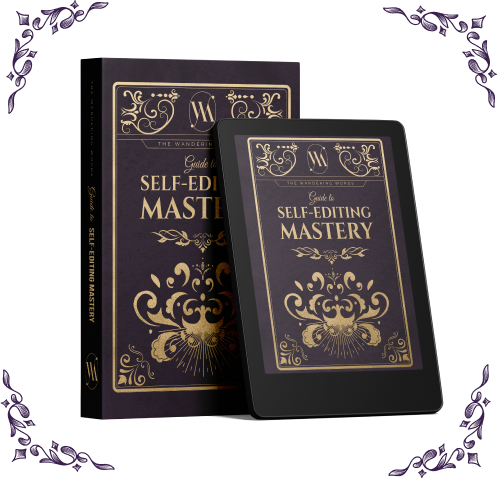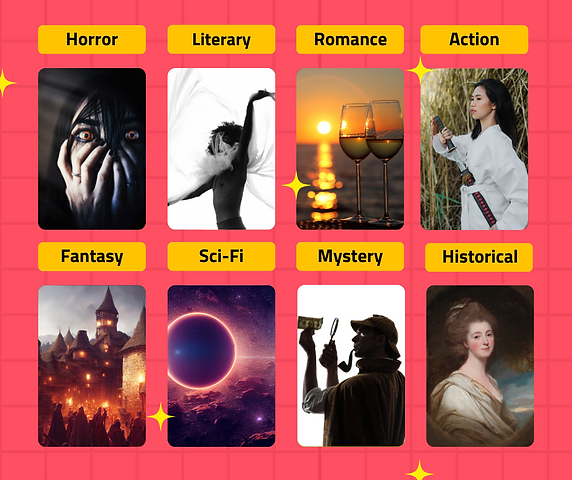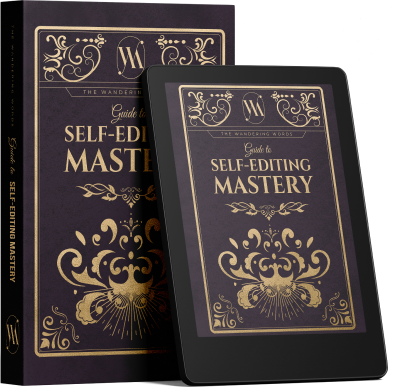Our Guide to Self-Editing Mastery has helped thousands of authors just like you:
- Pre-edit their books with ease
- Avoid the most common writing errors
- Quickly identify spelling & grammar mistakes
- Be more prepared for professional editing
Our Guide to Self-Editing Mastery has helped thousands of authors just like you:


What are genres and subgenres? Do they really matter? Does every book need to fit into one of these little boxes?
Today, we’re going to answer those questions by taking a look at how understanding the difference between genres and subgenres can help you craft a stronger story and a better marketing strategy.

Genres are the big, overarching categories that classify different types of literature. Think of them as the main sections in a bookstore—in fiction, you've got your romance, mystery, fantasy, science fiction, horror, and so on. (In nonfiction, you have self-help, business, biography, textbooks, cookbooks, etc., but we’re going to focus on fiction today.) Each genre has its own set of conventions, themes, and expectations that readers have come to know and love.
Within each genre, you'll find a whole bunch of subgenres. These are smaller, more specialized categories that further define the type of story you're telling. For example, within the horror genre, you might have subgenres like splatterpunk, slasher, or creature feature. Each of these subgenres has its own unique vibe and audience.
As an author, knowing which genre your story falls into can give you a solid foundation to build upon. It's like having a map—you know where you're starting from and where you want to go. This can help you stay focused and ensure that your story delivers on the expectations of readers within that genre. You know that romance readers want a happily ever after, horror readers enjoy a strong Final Girl, and fantasy readers expect an element of magic. Knowing audience expectations can help you craft the plot of your story into one that people will actually want to read.
Let’s put it this way: if you picked up a book in the horror section of a bookstore, but by the end of the book there wasn’t a monster or a killer, and the two leads just happily fell in love and got married…you’d be disappointed, wouldn’t you? You’d at least be confused as to why it was in the horror section of the bookstore. Genre matters!
Going even deeper, by understanding the nuances of different subgenres, you can tailor your writing to appeal to specific audiences who are hungry for exactly what you're offering. In other words, knowing your subgenre (and the tropes that go with it) can help you better “write to market” and create a solid readership for your book.
To put this into perspective, a reader is going to have a set expectation when they pick up a thriller, but those expectations will be different if they’re picking up a cyberpunk thriller, a romantic thriller, or even a historical thriller. Someone picking up an epic fantasy will be expecting an entirely different story than someone looking for an urban fantasy. It isn’t just the setting that changes within subgenres. Commonly used tropes, expected arcs, and even the themes change within subgenres.
That means each subgenre has its own map to follow. Knowing this in advance will make it that much easier for you to craft a plot that leads your readers down the road they’re hoping to travel.
For new authors, this might feel limiting. What if your book doesn’t really fit into any genre? What if it’s totally original?!
The tough-love answer is that it almost certainly either fits into a single genre, or spans a couple genres (we call that “cross-genre”).
And when it comes to cross-genre work, you’re going to have an entirely different hurdle to jump over.
If you plan on publishing traditionally, it may be harder to find an agent. After all, a cross-genre book is a harder sell! And if you’re planning on self-publishing, you’ll have a harder time marketing it.
Let’s look at the romance-fantasy genre for a solid example.
Fans of fantasy aren’t strictly going to be fans of romance. They might not want a romantasy book. And fans of romance may not like to read about elves and magic! That means your potential readers have just been cut in half.
That’s why, even within the concept of a cross-genre story, you’re going to want to know exactly what genres and subgenres you’re looking to explore. What are the standards of a romantasy? What are the standards of a horror-romance? They differ vastly from the standards of a straight horror—and your readers will be cut from a different cloth, too!
Don’t think of genres as limiting boxes, but as guidelines. Use that information to give you the kind of guidance you might need to make it to the end—and make some sales.
Of course, it’s okay to subvert expectations, take risks, and be original—you don’t have to write your book like a color-by-number. But genres exist to help the writer know what to write, and help the reader know what they might like to read. Don’t ignore these helpful tools!
~K. E. Koontz

